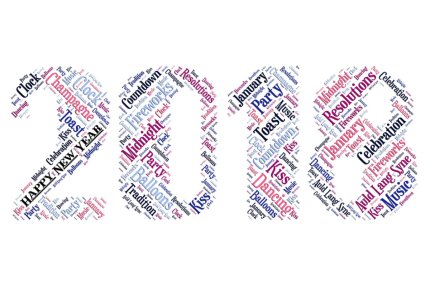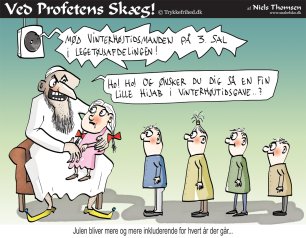At the beginning of a new year, it is good and sound practice to take stock of the old one. And certainly, seen through the lens of freedom of expression there is every reason to take note of the attacks on freedom of expression that has characterized the past year, attacks which have come from the very institutions that hitherto has protected our freedom of expression as their foremost obligation: the Folketing and the Universities.
In the autumn of 2018, the Minister of Justice made a proposal to expand the criminal spy law to not only include information going out of the country, but also information coming into the country, planted there by foreign intelligence agencies with the express purpose of influencing opinions in Denmark.
The bill criminalized the sharing of such information, from the largest media down to the average Facebook user, information that included completely legal opinions and utterances. The crucial thing was, and is, that it is not the content of the information itself, but WHO has planted this information. An unprecedented interference with freedom of expression, which, according to the bill, could earn the offender up to 12 years in prison.
In December, the Danish government signed the UN's migration pact, thereby committing themselves to, among other things, interfere with how the media angles their reports about the flow of migration so that the stories became "ethically correct" - and to stop media support for such media that does not write positively about migration. That the migration pact is not legally binding is totally irrelevant in this context: the government has bound Denmark to a UN Charter that has the stated political goal to allow political influence on, and intervention in the work of the press and the media. It is a full frontal attack on the press and freedom of expression.
It is a completely new situation that we in the Free Press Society have experienced in 2018 - that the threat to freedom of expression now also comes from government and parliament, and that our struggle for the free word must in future now also cover a whole new flank – a flank that had, up until present day, been well defended, because Danish politicians have traditionally been very conscious of protecting our freedom of expression. That tradition was seriously weakened in 2018.
The second marker that freedom of expression in Denmark is under pressure from within our own institutions, is that the opinion and speech tyranny that now characterizes universities in the USA, where the students have taken power, introducing “safe spaces”, trigger warnings for unwanted utterances, and getting teachers fired for not using sufficiently "inclusive" terms in their lectures, has now also unfortunately made its debut at Danish universities.
A completely absurd victim and offence-ideology, which we had long hoped that Danish youth were too enlightened and gifted to embrace - and the teachers too responsible to allow - but that hope was roundly shot down in 2018. Firstly, three (three!) Law students succeeded in getting the University of Copenhagen to introduce a ban on "offensive costumes" after some participant students during “hazing week parties” had dressed as Indians and Mexicans.
Later it emerged that the Deputy Head of CBS, Mads Mordhorst, had given one young student an apology because they had sung "The Danish song is a young, blonde girl" (a very old and beloved Danish song) at an internal event. The obviously non-blonde student had been too ignorant and uninformed about the meaning of the song, and had felt offended and excluded. A perception Mads Mordhorst fully understood and where he stated to the newspaper Kristeligt Dagblad: “Otherwise we have no opportunity to develop and to realize, how home-blind (insular) we are.”
The combination of a political establishment that seems increasingly willing to sacrifice freedom of speech for short-term gains, a self-conscious, immature and offended student segment, and a group of scared teachers and professors with acute cases of “consideration-itis” – is pure poison for the free word:
Present-day millennial youth are the leaders of tomorrow, and if they are not already now, while there is still time, given a sound verbal walloping and regular dressing down by both teachers and politicians for being pampered, blind and uneducated, then it will be their limited and perpetually offended norms that will come to characterize the future of Denmark.
This will, in addition to casting a veritable grenade at democracy and freedom of speech, cause an irreversible loss of education, which will be very difficult to regain. We must avoid that situation at all costs, and it begins with "the grown-ups” - teachers and politicians pull their proverbial “shit” tremendously together, take the lead, and start acting like they role models they are supposed to be.



